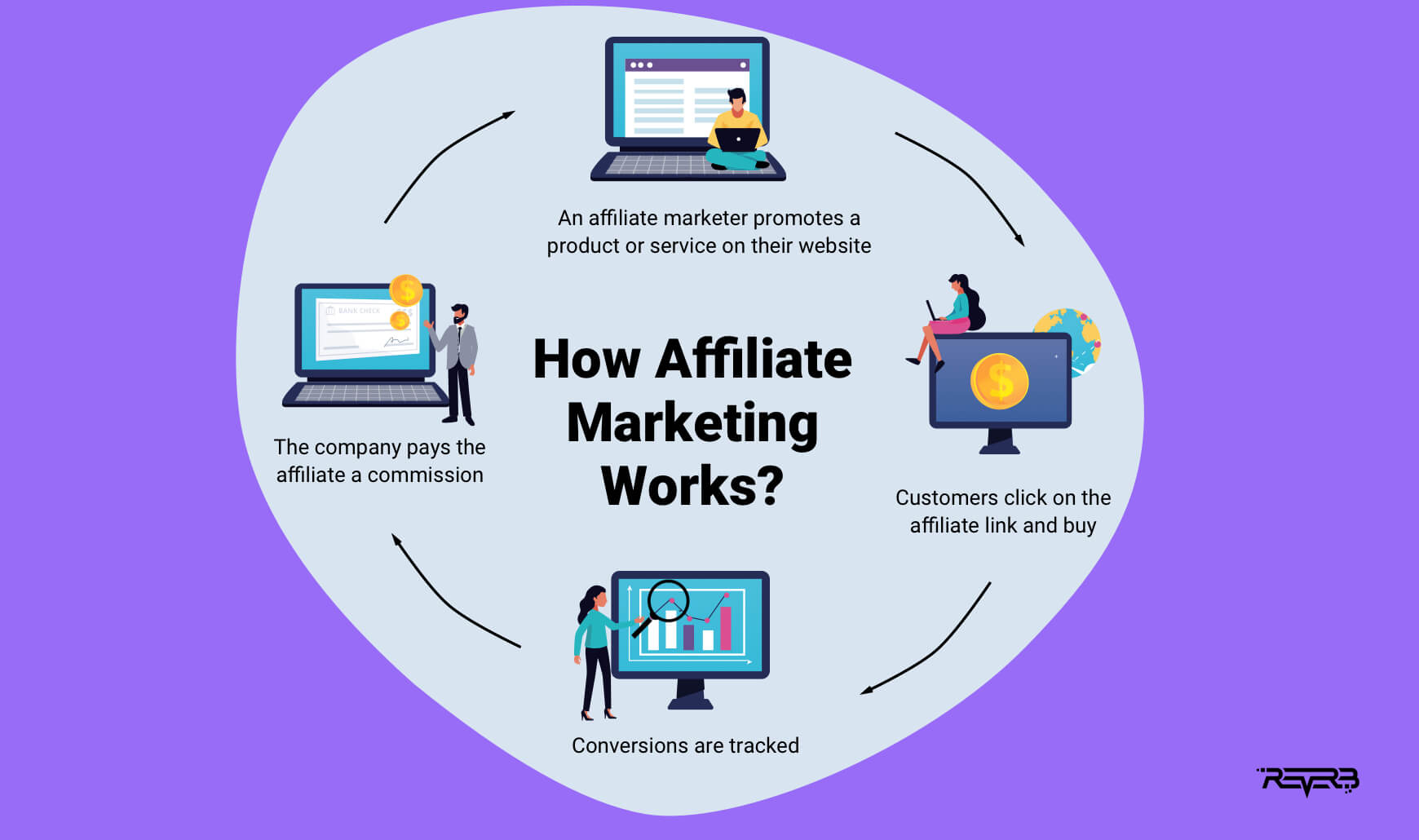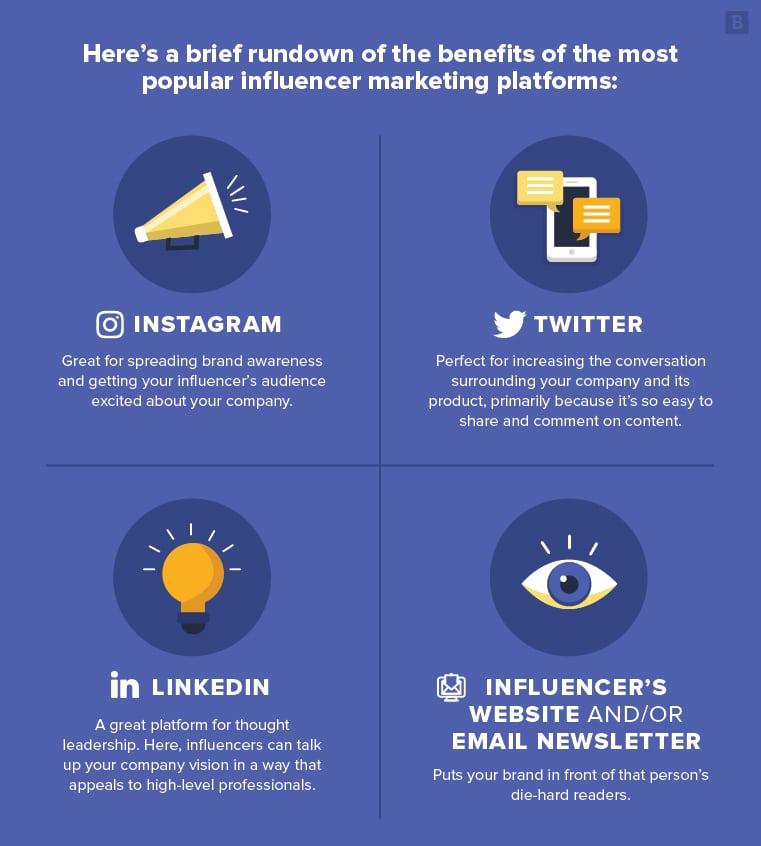Looking for new ways to gain new customers and increase sales? Two powerful digital marketing strategies you could use are affiliate marketing and influencer marketing. Both are ways to harness content creators’ recommendations.
But how do you decide which of these strategies will work best for your business? We’ve got you covered with this guide to influencer marketing vs. affiliate marketing.
Affiliate marketing vs. influencer marketing: The main differences
The main differences between influencer marketing vs. affiliate marketing are the KPIs measured and the way brands compensate content creators.
Influencers help brands generate website traffic and increase engagement, but it’s hard to measure the sales they help drive. In contrast, affiliates directly drive sales, and it’s easy to measure the sales they are responsible for.
In terms of payment, influencers are paid by campaign; they could be paid in a variety of ways, such as through free products, gifts, cash, or other incentives. Meanwhile, affiliates are always paid a monetary commission on every sale.
Now, let’s take a deeper dive into affiliate marketing vs. influencer marketing, to find out all the differences and similarities.
What is influencer marketing?
Influencer marketing is a strategy where your business partners with influential content creators to promote your products or services.
An influencer will agree to create content pieces for your brand on their blog or social media account. Each influencer marketing campaign is usually short-term, consisting of few social media posts or articles during a set period of time.
Influencers are largely found on social media platforms. And with today’s billions of social media users, a successful influencer marketing program can quickly create brand awareness and increase your reach.
Contrary to popular belief, influencers don’t always need to have large amounts of followers.
What’s far more important is that influencers are highly trusted among their followers, and that these followers are in your ideal target audience. In fact, micro-influencers (who have relatively fewer followers) often have higher levels of engagement and trust than the bigger names.
Since authentic influencers have a considerable degree of sway over their followers, the right influencers are likely to convince others to buy your products and services.
But influencers aren’t paid based on the number of direct sales they help make – they’re usually paid per campaign. This makes them different from affiliates, who are paid using a commission-based model.
What is affiliate marketing?
An affiliate marketing program allows you to promote your products and services through other content creators’ digital platforms (blogs, social media accounts, and websites).
The content creators who promote you on their sites are your affiliates. Affiliates post and maintain trackable links to your website (known as affiliate links) within their content.
Whenever a lead discovers your brand through one of your affiliates’ sites, clicks on the affiliate link, and makes a purchase, your business compensates the affiliate with a commission.
As they’re working under a performance-based reward system, affiliates are encouraged to drive as many sales as possible to maximize their commissions. The more sales an affiliate makes, the more they earn.
In turn, you increase lead generation, boost your site traffic, and grow your revenue.
And since affiliate content is highly trusted among their audience, affiliates’ followers are more likely to buy from you. Ultimately, affiliate marketing is a win-win partnership program for both you and the affiliate.
Similarities between influencer marketing and affiliate marketing
Is affiliate marketing the same as influencer marketing? Not quite.
Affiliate marketing and influencer marketing are two very different approaches to digital marketing. They do, however, share similar features. Here are some notable ones:
Both involve digital content creators
Both influencer and affiliate programs are collaborations with digital content creators, such as Instagram personalities, YouTubers, TikTok stars, and bloggers.
These creators produce digital content for their audiences, which happen to match your own target market. This content, posted on their own channels and seen by their followers, is where they can successfully promote your products and services.
Both employ trust to drive purchases and brand growth
Both influencer and affiliate programs are word-of-mouth marketing approaches that require authenticity and proof.
Creators have earned their followers’ trust by constantly producing content that is authentic, engaging, and interesting. They’re regarded as experts in their niche and among their audience (even if they have relatively less followers).
When content creators promote a brand, their followers trust what they have to say, making it easy to encourage their audiences to try the product or service they feature. Their recommendations are trusted much more than messaging that comes straight from a brand.
Both don’t require any experience with your product
Interestingly, both affiliates and influencers don’t need to have previously used the product to market it. Even if they don’t have any experience with the product or service, they can still promote it – the main goal is to drive sales and revenue for your brand.
However, if the influencer or affiliate personally loves your product or service, it will make their campaign more effective.
Both influencer and affiliate marketing can be used at the same time
A content creator can be both an influencer and an affiliate.
For example, a creator could have influencer partnerships with some brands, where they promote product campaigns on their social networks, while simultaneously adding affiliate links for different brands on their account.
In this case, they receive a flat payment for each influencer campaign, while also getting commission for each purchase made through the affiliate links. (They don’t get commission for the sales generated by their influencer campaign).
On the other hand, some brand campaigns labeled “influencer programs” may be more like affiliate programs.
If the influencer is asked to promote a sales link or code with a discount attached, and is compensated for each resulting sale, they’re engaging in a form of affiliate marketing (regardless of the length of the campaign).
Differences between influencer marketing and affiliate marketing
Below, we’ve highlighted the main differences between influencer vs. affiliate marketing, to help you compare both types of marketing approaches:
| Influencers | Affiliates | |
| Length of relationship | Short-term | Long-term |
| Primary campaign goals | Increase brand awareness and engagement around a brand | Generate leads and sales |
| Compensation structure | Paid by the campaign | Paid a commission on each sale |
| Payment type | Could be cash, free products, or another incentive type | Almost always cash |
| How are campaigns tracked? | Campaign reach, engagement rates, and website visitors (not number of sales) | Number of sales, conversion rates |
| Software used to run campaigns | Influencer marketing software, brand mention tools | Affiliate marketing software |
Length of relationship
Influencer partnerships are usually short-term in nature. On most occasions, influencers share and promote a few branded posts on their social platforms. But the relationship doesn’t last too long, as it’s common for influencers to move on and partner with different brands.
Unlike influencers, affiliates might have affiliate links on their websites for much longer periods. Affiliate links tend to draw in sales gradually, so the longer the affiliate maintains the link, the more they stand to gain.
Primary campaign goals
Influencer campaigns are largely focused on increasing brand awareness, fostering engagement around your brand, and directing traffic to your website. Although influencers may ultimately help you drive sales, it’s hard to determine how much impact influencers have on sales.
Affiliate campaigns are focused on generating warm leads who visit your website, and directly converting those leads into sales.
Payment
Influencers are commonly paid per campaign, with the payment either made before or after the campaign. But in most cases, especially if you work with well-known influencers, they might request you make the payment upfront. So, influencer marketing is not a performance-based model (you’ll pay a flat fee regardless of how the campaign performs later).
Influencer payments could be made in cash, but don’t have to be. They could be in the form of free products, especially if you’re working with smaller influencers. How much you pay will depend on the influencer’s number of followers, partnership period, campaign scope, and other factors.
On the other hand, affiliates are paid an affiliate commission on every purchase made through their affiliate link. Unlike influencer payments, affiliate payments are entirely based on conversions, so you only pay your affiliates once they deliver results.
What’s more, affiliate commissions are almost always paid in cash. The commission could be a flat fee on every purchase or a percentage on each sale.
Tracking
Influencer campaigns can be tracked according to a number of KPIs, such as the campaign reach, engagement rates, and website visitors that result from the campaign. They aren’t usually tracked by the number of sales made, which can be difficult to track directly.
The exact number of sales made by each affiliate is precisely tracked by their affiliate link, so you’ll know at a glance how each affiliate is performing. It’s easy to see how many leads converted to sales after an affiliate brought them to your landing page or product page. In most cases, affiliate marketing software is used to track the entire sales process and analyze other marketing metrics.
Software
The two marketing approaches call for different and unique software to manage their campaigns.
When it comes to influencer marketing software, you’ll be able to:
- Use brand mention features to find influencers, and check their audience, reach, and engagement rates
- Manage and keep in touch with influencers throughout the campaigns
- Track the campaign performance by looking at KPIs, such as website traffic and engagement levels
On the other hand, affiliate software helps you:
- Build forms where potential affiliates can apply to your program
- Create unique affiliate links
- Track sales numbers, and the affiliates responsible for them, with each individual affiliate link
- Conduct affiliate onboarding and training
- Regularly communicate with affiliates
- Instantly reward affiliates with the sales commissions they earn
Thinking about recruiting influencers and wondering where to begin? Our list of influencer marketing best practices is a great place to start.
On the other hand, if you’ve decided to start an affiliate program, don’t miss our ultimate affiliate program guide.
Benefits of influencer marketing
If you’re still trying to decide between influencer marketing vs. affiliate marketing, comparing the benefits of each form of marketing may help.
As a whole, influencers are very effective at generating brand awareness, increasing branded conversations, and building trust in your brand, as they hold significant authority among their audience.
Note that the specific benefits of influencer marketing depend largely on the platform that the influencer uses. Here’s how you can reap the benefits on some of the most popular platforms, as explained by Brafton:
Remember, though, that influencers can be affiliates. Thus, you can also build brand awareness and trust by starting a hybrid affiliate-influencer program. And with an affiliate element in play, your marketing and sales success will be far easier to track (as we’ll cover in the next section).
Benefits of affiliate marketing: Why it’s better than influencer marketing
Although influencer marketing is an effective growth strategy, affiliate marketing offers almost all of the same benefits, plus tracking and risk-reduction features that set it apart. By following affiliate marketing trends, you can gain maximum insight on how to make it work best for you.
Here are two reasons why you should consider affiliate marketing for your business instead of influencer marketing (or as a foundation for influencer marketing):
Affiliate campaigns are easy to track
Tracking campaigns isn’t always easy. However, tracking affiliate sales is a no-brainer, thanks to affiliate links. Affiliate links make it easy to know your ROI, as you’ll identify and reward every sale generated by affiliates.
On the other hand, influencer campaigns typically don’t have a trackable link to your website. This makes it hard to track sales made from specific influencer campaigns.
Affiliate campaigns offer reduced risk
Affiliate marketing is cost-effective, you only pay when you get a sale. This guarantees you’ll receive a positive return on the investment in your affiliate program.
But with influencer campaigns, you have to pay a set flat fee, sometimes even before the campaign kicks off. Paying when you don’t know the results is risky. If not designed correctly, an influencer campaign may not result in much revenue, or might even make you lose profits.
It’s a much better move to pay for the results you receive, rather than making a bet that might not pay off.
Choosing between influencer marketing vs. affiliate marketing
Between affiliate and influencer marketing, which one is the most ideal for your business? Compare what the programs can accomplish to the long-term goals your business seeks to achieve.
Keep in mind that:
- Influencer marketing campaigns run for a shorter period, while affiliate marketing campaigns drive results in the long term.
- Influencer marketing tends to be best at expanding your brand recognition, while affiliate marketing is focused on tracking sales and your return on investment.
- Influencers are paid by the campaign, while affiliates are paid by the sale.
It may also help to compare the pros and cons of influencer marketing vs. affiliate marketing:
Influencer marketing |
|
| Advantages | Disadvantages |
|
|
Affiliate marketing |
|
| Advantages | Disadvantages |
|
|
Utilizing influencer-affiliates to track ROI
Remember that you can choose both influencer and affiliate marketing. It’s as simple as recruiting social media influencers, then giving them trackable affiliate links to measure the sales they bring in.
This way, you’ll be able to measure the sales that your influencer-affiliates bring in, and creators can earn money for every sale they help you drive.
Influencer marketing works best when it’s paired with affiliate marketing!
Similar types of programs to consider
Not sure if an affiliate or influencer program is a good fit for your needs? There are many other types of partnership marketing programs.
Here are two of the most effective types you can consider:
Referral program
With a referral program, you reward customers for recommending your brand to their friends and family.
Each recommendation is tracked through a unique referral link. If it results in a sale, the customer gets a reward incentive.
The best part of a referral program is the recommendations come from personal relationships, which makes potential customers see your brand in a positive light and more likely to convert.
Brand ambassador program
In a brand ambassador program, you select representatives from your most loyal customers to officially represent your business in the long term. Brand ambassadors highlight how they use your products and showcase their benefits.
Compared to affiliate programs, brand ambassadors are more focused on creating awareness and expanding your reach, rather than bringing the highest sales possible.
For a detailed comparison of brand ambassadors vs. affiliates, don’t miss our other comparison guide.
Wrapping up
Now that you have a better understanding of how influencer vs. affiliate programs work, as well as their similarities and differences, you can make a well-informed decision about which (if any) is best for your business needs.
If you’re interested in an affiliate marketing program, Referral Rock offers an all-in-one affiliate marketing software that works for all types of businesses. Customize your affiliate program to your needs, and easily integrate with your existing tools and processes.
It’s also flexible enough to run referral programs and brand ambassador programs, as well, so you can easily build a word-of-mouth engine that fits your needs. Request a demo to learn more.









